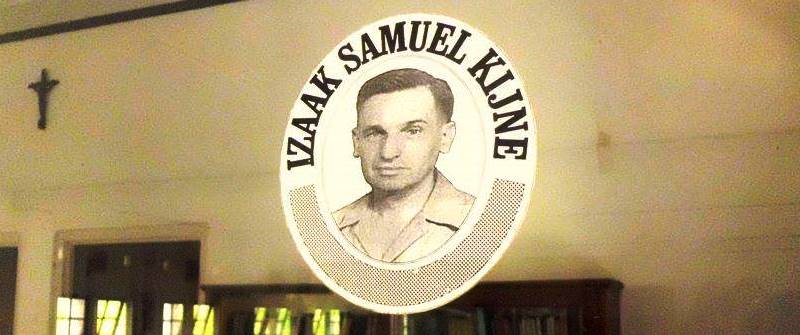
13 Jul ‘Oh my land Papua’ (blog by Tom van den Berge)
‘Oh my land Papua’: Izäak Samuel Kijne, 1899-1970, missionary teacher in New Guinea. In the autumn of 2013 a Papua fanatic visited the KITLV. The Papua fanatic is an elder Dutch male social anthropologist and has widely published on – of course – New Guinea and Papua. He came to our institute with a request: could any one of us write a biography on this Dutch missionary teacher who worked in New Guinea from 1923 till 1958? To put it mildly, we were reluctant. Thereupon the man said, ‘I have money.’
And so, on March 1st 2014 I started with the project entitled ‘Hai tanahku Papua’ (Oh my land Papua). The title is the first line of a poem, a song, that was composed in the Indonesian language in 1925 by Izäak Samuel Kijne, the Dutch missionary teacher I am writing a biography on. Amazingly, since 1963 ‘Hai tanahku Papua’ is the national anthem, be it unofficial, of West Papua. The anthem is currently a prominent symbol of independence activists, including Organisasi Papua Merdeka (Free Papua Movement). Use of the anthem within the province is prohibited by the government of the Republic of Indonesia.
In 1923 missionary teacher Kijne arrived on the island Mansinam off Manokwari. There he held an appointment as teacher at a training school. He trained gurus who would ‘go into all the world and preach the gospel to all creation’. After two years Kijne moved with his school and his pupils to Miei on the Wandammen Peninsula in the Cenderawasih Bay. Kijne was a ‘seasoned pedagogue’, a ‘real teacher’. Moreover, Kijne was an excellent choir master with a perfect pitch. Under his capable direction his Papuan pupils performed Bach’s Saint Matthew Passion.
Although Protestant and Catholic mission legitimized colonialism, the missionaries introduced a range of thought that helped induce an indigenous political nationalism. Kijne educated and instructed hundreds and hundreds of Papua students, and by doing so sowed the seeds of a self-confident elite. His students became the later politicians and civil servants who would dominate the debate on the future of Papua.
In 1958 Kijne repatriated. Involuntarily. In Oegstgeest the displaced Kijne lectured ethnosociology at the Protestant Missionary College. He left the college in 1969. In the same year the United Nations supervised a popular consultation in order to give the Papuans the freedom of choice in determining the future: ‘The Act of Free Choice’ often criticized as ‘The Act of No Choice’. It was a sham. Instead of the whole population, only 1025 tribal chiefs were allowed to vote. They voted publicly and unanimously in favour of New Guinea’s entry into the Republic of Indonesia. One year later, in 1970, Izaäk Samuel Kijne died. Of grief. In the Netherlands he is now long forgotten.
In Papua, however, Izaäk Samuel Kijne is still alive and kicking. His poem, ‘Hai tanahku Papua’, be it unofficial, be it prohibited, is the anthem of West Papua. Moreover, Kijne’s name is attached to the Theological College of the Evangelical Christian Church, founded in 1954 in Papua’s capital Jayapura: Sekolah Tinggi Teologi Gereja Kristen Injili ‘I.S. Kijne’. Last not least. Even now children are called after the Dutch missionary, this ‘seasoned pedagogue’, this ‘real teacher’. There is a past, a now and a future for Izaäk Samuel Kijne.




Jan W. Kijne
Posted at 14:10h, 28 SeptemberDat mijn vader de hele Mattheus Passion in Nieuw Guinea heeft uitgevoerd lijkt mij een sterk verhaal, maar koralen, dat zeker. Mendelssohn was ook van de partij, en zo meer. A capella, met alleen een stemvork. Onderbelicht in bovenstaand stukje blijven de vele taalstudies van mijn vader in het gebied, schriften en schriften vol. Dat bracht hem in vertrouwd contact met de Papoea’s en heeft enorm bijgedragen aan de kwaliteit en populariteit van zijn werk.
Marthen Samori
Posted at 10:22h, 19 JulyWij Papoeas zijn altijd dankbaar aan God de Vader voor Izaak en Jopie Kijne. Wij zijn blij en zien naar de grote ontmoetings dag, dat wij Izaak en Jopie eens te ontmoeten indat heerlijke “Kota Emas” die zij ons vaak hadden vertelt.